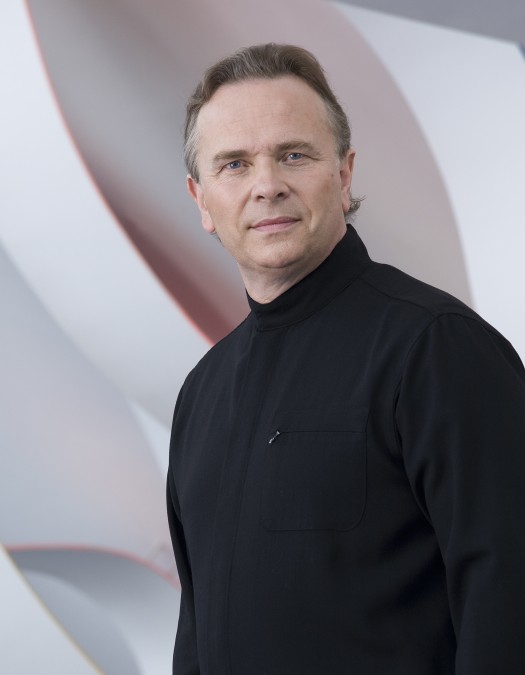 Switzerland Butterworth, Elgar and Richard Strauss Tonhalle Orchestra, Thomas Grossenbacher (cello), Michel Rouilly (viola), Sir Mark Elder, (conductor), Tonhalle Zurich, 18.12.2011 (JR)
Switzerland Butterworth, Elgar and Richard Strauss Tonhalle Orchestra, Thomas Grossenbacher (cello), Michel Rouilly (viola), Sir Mark Elder, (conductor), Tonhalle Zurich, 18.12.2011 (JR)
Butterworth: Rhapsody
A Shropshire Lad
Elgar: Enigma Variations
Richard Strauss: Don Quixote

Sir Mark Elder stepped in to this concert replacing Andris Nelsons, who we were told was about to become a father. (Mrs. Nelsons is the Latvian soprano Kristine Opolais – they married in April.) The programme was therefore changed, with two British works – one well known here, one not – replacing Brahms’ 3rd Symphony in the first half.
Very few in this predominantly Swiss audience would have heard of George Butterworth or A.E. Housman’s series of poems “A Shropshire lad”. Butterworth was educated at Eton and Oxford, was a friend of Vaughan Williams and Adrian Boult, a collector of folk tunes and an expert Morris dancer, but died tragically in the trenches of the Somme in 1916, aged a mere 31. He did not write a great deal of music, and before and during the war he destroyed many works in case he should not return and have the opportunity to revise them. Of those that survive, his works based on A.E. Housman’s collection of poems A Shropshire Lad are among the best known. The Intendant (General Manager) of the Tonhalle Orchestra, Elmar Weingarten, knew and admired the work and admitted that he specifically requested it when approaching Sir Mark to step in.
The Rhapsody, A Shropshire Lad, a sort of postlude to the songs, was influential on Vaughan Williams. And it was the music of Vaughan Williams, particular his Pastoral Symphony, which sprang to mind on listening to this evocative work. Even on a snowy Zurich evening, the piece managed to evoke the English countryside and fitted all the patterns of quintessentially English music. The oboe’s plangent nostalgic opening theme was beautifully played by Principal Martin Fuchs. The strings played their main theme luxuriantly and with ardour; it was a beautiful and moving performance. One wondered what great works Butterworth might have gone on to write had he survived the war.
Most Swiss music-lovers know of or have heard the Enigma Variations but it is not played often outside Britain. It was, of course, in Sir Mark’s blood, but not quite in the blood of the Tonhalle Orchestra, quite forgivably, even though the orchestra counts a number of Brits. There were some lapses here and there, but generally it was a more than creditable performance. Special mention must go to Principal Viola Gilad Korni, principal cellist Anita Leuzinger and the young timpanist Benjamin Forster, who all relished their individual participations. Nimrod was played at just the right the speed to bring tears to the eyes. The orchestra looked and sounded as though they enjoyed playing the piece and Sir Mark was visibly pleased with the final result.
After the interval, more variations in Richard Strauss’ Don Quixote, which is not a piece which gets frequent outings, requiring not one but two fine soloists. The Tonhalle chose their Principal cellist Thomas Grossenbacher and Principal Viola Michel Rouilly. The work was written at almost the same time as the Enigma Variations, but is considerably more modern in tone and orchestration. Here the orchestra sounded more at home with the work, though Sir Mark needed a score (and a chair) which he had been able to dispense with in the first half. Thomas Grossenbacher’s performance grew in stature as the work proceeded, whilst Michel Rouilly sounded relaxed and mellifluent throughout. Grossenbacher was tender and impressive in the final sections, when Don Quixote finally gives up the ghost. Elder relished the continual waves of Straussian melody which wash over the audience, interspersed with burlesque elements such as wind-machines and ghostly sounds. Strauss had asked that the piece be performed as a companion piece to his Ein Heldenleben, a recommendation never followed today.
The concert was billed as a festive concert at Christmastime. Despite the Christmas tree in the foyer with its baubles and gifts, there was nothing festive or Christmassy in the programme, but it was a fine and entertaining concert nevertheless. Sir Mark remains a welcome guest at the Tonhalle.
John Rhodes